I am from a beef farm in Co Waterford and decided to use my PWE to gain as much knowledge and experience as possible in the other sectors.
My main goal was that, upon finishing the 30 weeks, I would have an idea of what career path I would like to pursue after graduation.
Animal and crop production (ACP) in UCD includes a 30-week placement in semester two of third year, which gets the student to apply the theory and practice learned in college to the industry and farms.
Some weeks of the 30-week professional work experience (PWE) module specify what we have to do, and the rest are left to ourselves to gain as much relevant experience as possible.
For example, we must devote four weeks to each of the following; pig farming, beef farming, dairy farming, sheep farming and tillage farming.
UCD facilitates ag science students going abroad for a semester in third year, and I availed of this opportunity to spend the whole of semester one (August-December) in Iowa State University. Iowa is in the heartland of tillage farming in the USA, and, while there, I worked on their research farm where I gained experience in their soya bean breeding programme.
I enjoyed it, but I didn’t have much experience in the tillage sector in Ireland, so decided to use a lot of the 30 weeks of work experience in semester two to get more experience working with the production of wheat, barley and oats here.
Pigs
I began my placement in January on a modern high-tech pig farm which was constructed only 18 months prior. I gained firsthand experience with modern technology such as Big Dutchman Feeding System and Farmcloud.
I learned about the use of feeding graphs to determine the quantity of feed that is most economic to administer for each stage of production in the finisher unit. I gained experience in artificially inseminating the sows and I also learned about the economics of running a pig farm.
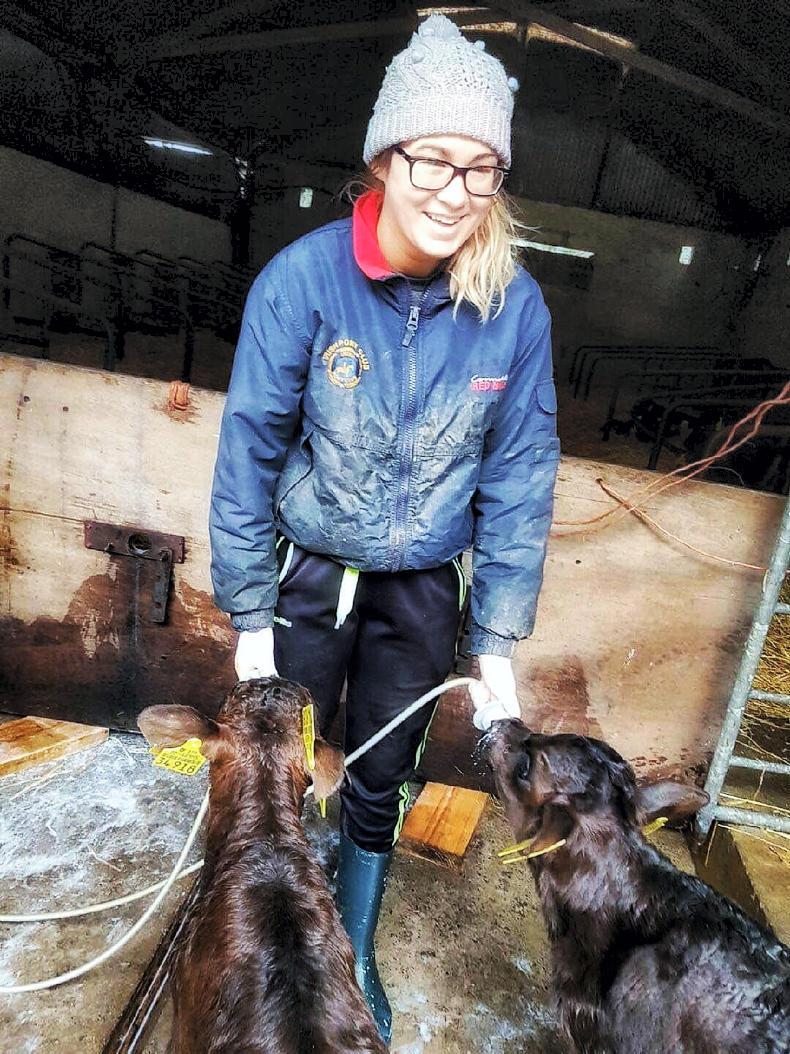
Dairy
Next, I spent four weeks on a large dairy farm, which is in the top 1% EBI in Ireland. Here, I helped out with milking, and also experienced calving and feeding the calves.
I had previously worked on this farm during the summer and had gained experience heat detection. But I decided to come back to witness the busy calving season on a well-run large-scale farm.
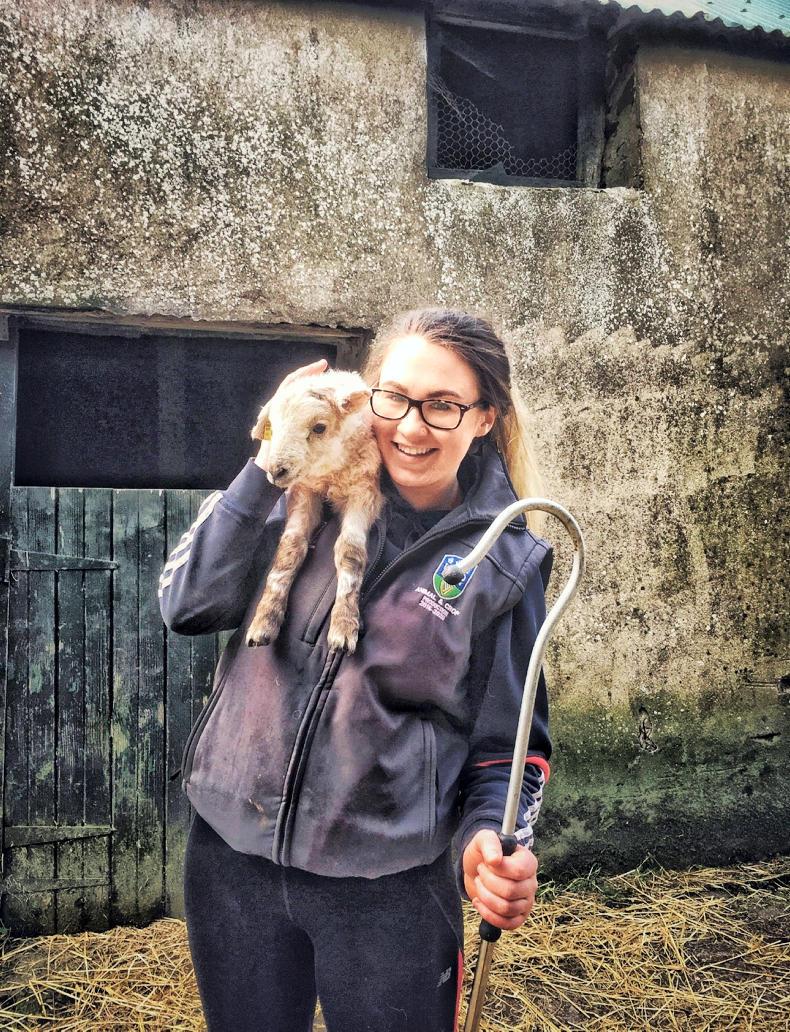
SheepIn early March, I went to an intensive sheep farm in Co Cork, where I resided with the family during their busy lambing period.
I carried out all of the tasks associated with lambing including delivery, tail docking, tagging, feeding, injecting and castrating.
Beef
In early April, I secured placement with my father’s beef adviser in our local Teagasc office.
There, I got to attend farm walks and beef discussion groups, helped compile profit monitor forms for a variety of farms and helped the adviser fill out and submit single farm payment returns.
I demonstrated to farmers how to measure grass using a plate meter and input the data into PastureBase.
In early May, I spent a week with an LIC breeding consultant. I secured this placement as I had sat in on this consultant’s visit to the dairy farm back in February and asked if I could shadow him for a week as part of my PWE.
During this week, I helped construct breeding programmes for several dairy farms.
This brought the theory of what I had learned in the genetics and breeding modules in my course into practical use, and it was interesting to see what traits different farmers wanted to focus on in their herd, such as milk solids or fertility.
Feed mill
I spent one week in a feed company mill where I learned how various grass seed mixes are assembled, and how animal feed is created using a low-cost feed formulation. I got to talk with the company’s nutritionist and she explained to me her day to day tasks. It was interesting to learn how they secure their supplies, sometimes ordering grain months in advance of when they need it.
I spent another week shadowing the agronomist from the feed mill as she visited tillage fields and advised farmers on their sowing rates, herbicide and fungicide programmes.
This was an eye-opening experience for me as the agronomist was very enthusiastic about her job and knowledgeable about the different herbicides and fungicides. It made me realise how many different sprays there are on the market and I became determined to learn as much as I could about them in terms of their chemical composition and their use.
Oakpark
In early June, I began a three-month placement in Oakpark. I was working on fungicide trials, so I learned a great deal about crop diseases such as rhynchosporium, ramularia and septoria.
I was involved in research trials which involved testing new fungicides that are not yet on the market to see what rate and time they work best at. I also gained experience with the marketing trials which looked at fungicides already on the market to see if the crops are developing resistance to them.
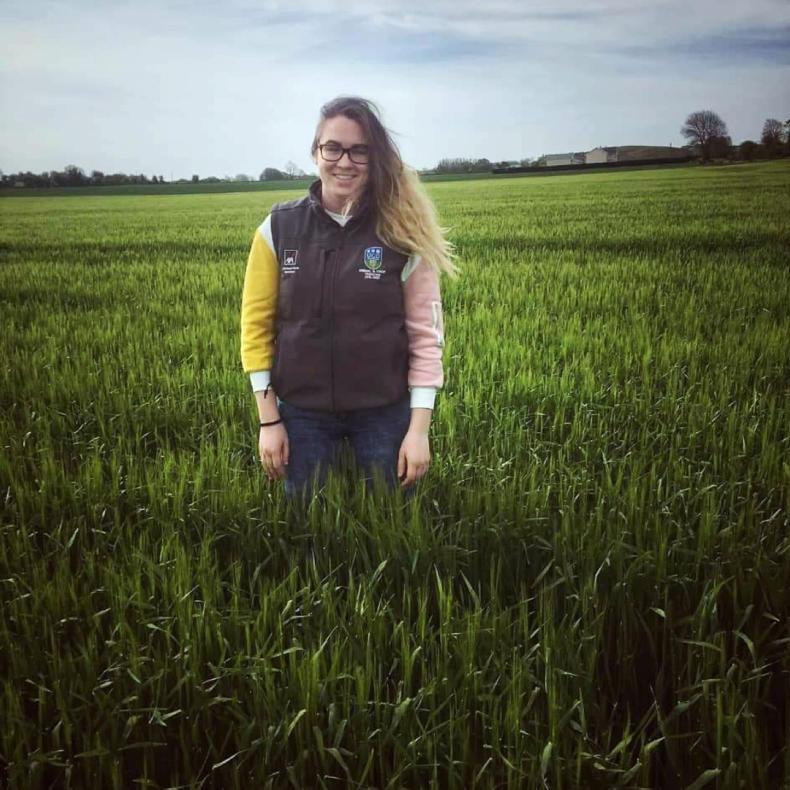
Chlorothalonil is a multi-site fungicide which will be banned this year which will be a major loss to the tillage sector as it is the fungicide effective in controlling ramularia on barley. A number of chemical companies have trials running in Oakpark which involved comparing their new upcoming multi-site replacements for chlorothalonil and it was interesting to see how these were being conducted.
I was also in Oakpark for the harvest so I gained experience with testing the seed for moisture, thousand grain weight and screenings.
I was allowed some holiday days. During these, I spent one day at the Seedtech open day in Waterford, one on a tour at ABP Rathkeale beef factory and one at a modern beef farm in Cork, which interestingly, had a robotic feeding system.
Opportunity
I grasped every opportunity during my placement to further my knowledge of the agricultural sector. While in Oakpark I spent many evenings after work going out to tillage fields with another agronomist where I learned the difference between growing crops for seed rather than growing crops commercially.
I met so many people while on placement who were more than helpful and patient with me as I tried to learn as much as I could from them in a short period. If you are reading this, you know who you are and I wish to thank you.
You get out of placement what you put into it. I kept in mind that placement was about bridging gaps in my practical experience of farming and learning as much as I possibly could to help me decide what career path I might go down after I graduate.
Read more
Not just surviving, but thriving
Addressing the dairy labour challenge
I am from a beef farm in Co Waterford and decided to use my PWE to gain as much knowledge and experience as possible in the other sectors.
My main goal was that, upon finishing the 30 weeks, I would have an idea of what career path I would like to pursue after graduation.
Animal and crop production (ACP) in UCD includes a 30-week placement in semester two of third year, which gets the student to apply the theory and practice learned in college to the industry and farms.
Some weeks of the 30-week professional work experience (PWE) module specify what we have to do, and the rest are left to ourselves to gain as much relevant experience as possible.
For example, we must devote four weeks to each of the following; pig farming, beef farming, dairy farming, sheep farming and tillage farming.
UCD facilitates ag science students going abroad for a semester in third year, and I availed of this opportunity to spend the whole of semester one (August-December) in Iowa State University. Iowa is in the heartland of tillage farming in the USA, and, while there, I worked on their research farm where I gained experience in their soya bean breeding programme.
I enjoyed it, but I didn’t have much experience in the tillage sector in Ireland, so decided to use a lot of the 30 weeks of work experience in semester two to get more experience working with the production of wheat, barley and oats here.
Pigs
I began my placement in January on a modern high-tech pig farm which was constructed only 18 months prior. I gained firsthand experience with modern technology such as Big Dutchman Feeding System and Farmcloud.
I learned about the use of feeding graphs to determine the quantity of feed that is most economic to administer for each stage of production in the finisher unit. I gained experience in artificially inseminating the sows and I also learned about the economics of running a pig farm.

Dairy
Next, I spent four weeks on a large dairy farm, which is in the top 1% EBI in Ireland. Here, I helped out with milking, and also experienced calving and feeding the calves.
I had previously worked on this farm during the summer and had gained experience heat detection. But I decided to come back to witness the busy calving season on a well-run large-scale farm.

SheepIn early March, I went to an intensive sheep farm in Co Cork, where I resided with the family during their busy lambing period.
I carried out all of the tasks associated with lambing including delivery, tail docking, tagging, feeding, injecting and castrating.
Beef
In early April, I secured placement with my father’s beef adviser in our local Teagasc office.
There, I got to attend farm walks and beef discussion groups, helped compile profit monitor forms for a variety of farms and helped the adviser fill out and submit single farm payment returns.
I demonstrated to farmers how to measure grass using a plate meter and input the data into PastureBase.
In early May, I spent a week with an LIC breeding consultant. I secured this placement as I had sat in on this consultant’s visit to the dairy farm back in February and asked if I could shadow him for a week as part of my PWE.
During this week, I helped construct breeding programmes for several dairy farms.
This brought the theory of what I had learned in the genetics and breeding modules in my course into practical use, and it was interesting to see what traits different farmers wanted to focus on in their herd, such as milk solids or fertility.
Feed mill
I spent one week in a feed company mill where I learned how various grass seed mixes are assembled, and how animal feed is created using a low-cost feed formulation. I got to talk with the company’s nutritionist and she explained to me her day to day tasks. It was interesting to learn how they secure their supplies, sometimes ordering grain months in advance of when they need it.
I spent another week shadowing the agronomist from the feed mill as she visited tillage fields and advised farmers on their sowing rates, herbicide and fungicide programmes.
This was an eye-opening experience for me as the agronomist was very enthusiastic about her job and knowledgeable about the different herbicides and fungicides. It made me realise how many different sprays there are on the market and I became determined to learn as much as I could about them in terms of their chemical composition and their use.
Oakpark
In early June, I began a three-month placement in Oakpark. I was working on fungicide trials, so I learned a great deal about crop diseases such as rhynchosporium, ramularia and septoria.
I was involved in research trials which involved testing new fungicides that are not yet on the market to see what rate and time they work best at. I also gained experience with the marketing trials which looked at fungicides already on the market to see if the crops are developing resistance to them.

Chlorothalonil is a multi-site fungicide which will be banned this year which will be a major loss to the tillage sector as it is the fungicide effective in controlling ramularia on barley. A number of chemical companies have trials running in Oakpark which involved comparing their new upcoming multi-site replacements for chlorothalonil and it was interesting to see how these were being conducted.
I was also in Oakpark for the harvest so I gained experience with testing the seed for moisture, thousand grain weight and screenings.
I was allowed some holiday days. During these, I spent one day at the Seedtech open day in Waterford, one on a tour at ABP Rathkeale beef factory and one at a modern beef farm in Cork, which interestingly, had a robotic feeding system.
Opportunity
I grasped every opportunity during my placement to further my knowledge of the agricultural sector. While in Oakpark I spent many evenings after work going out to tillage fields with another agronomist where I learned the difference between growing crops for seed rather than growing crops commercially.
I met so many people while on placement who were more than helpful and patient with me as I tried to learn as much as I could from them in a short period. If you are reading this, you know who you are and I wish to thank you.
You get out of placement what you put into it. I kept in mind that placement was about bridging gaps in my practical experience of farming and learning as much as I possibly could to help me decide what career path I might go down after I graduate.
Read more
Not just surviving, but thriving
Addressing the dairy labour challenge







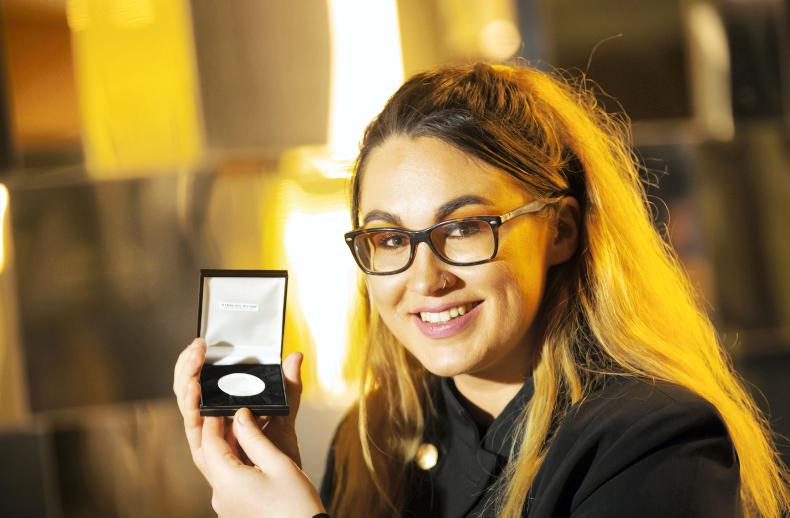
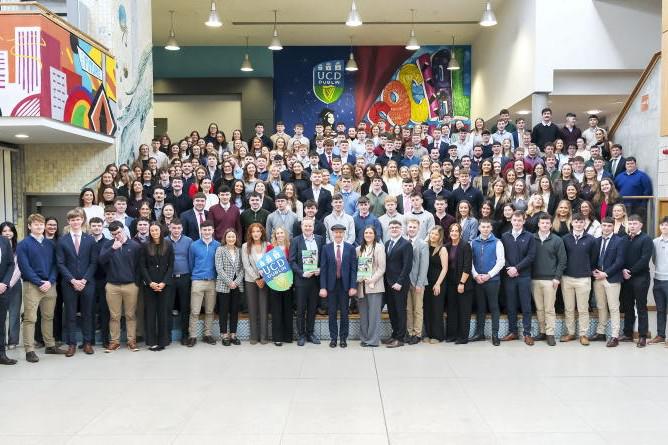
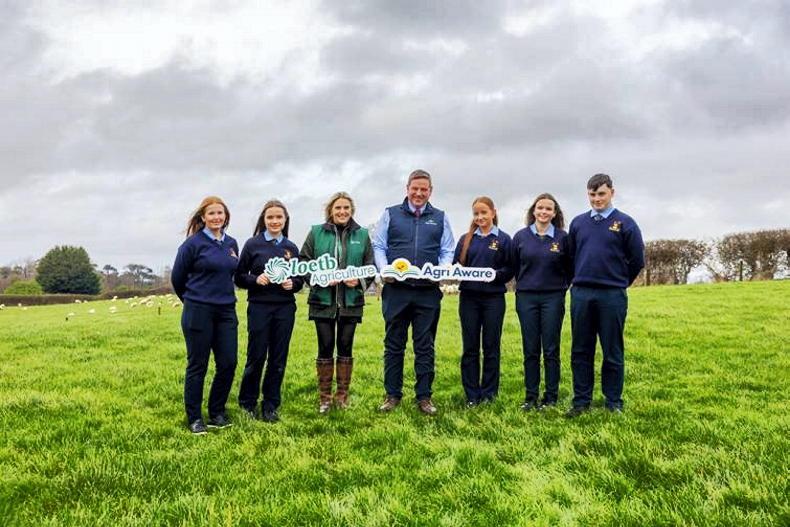

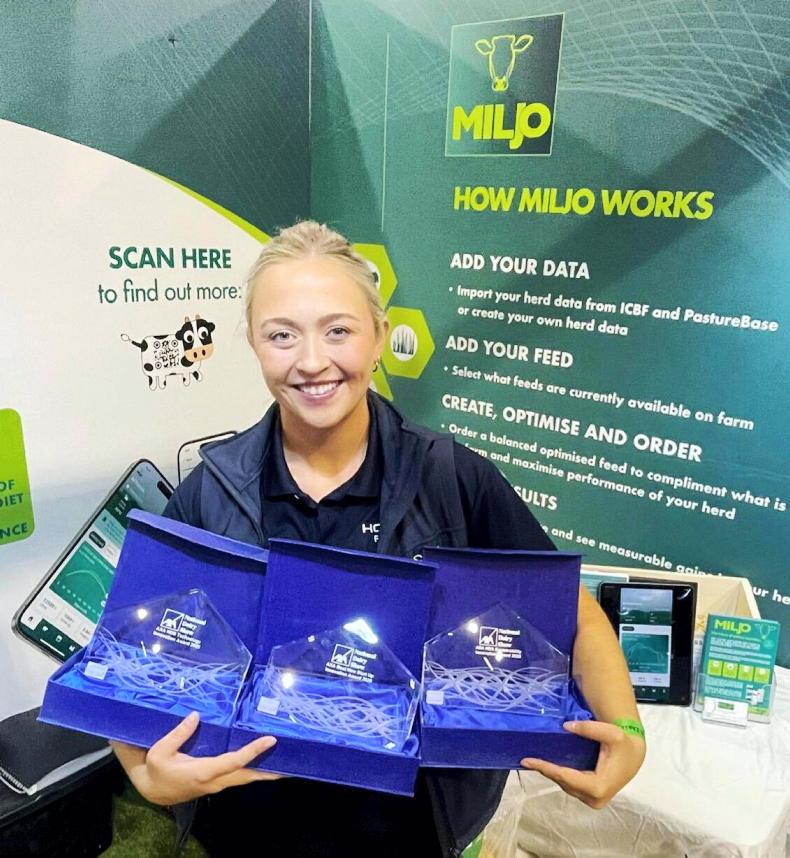
SHARING OPTIONS